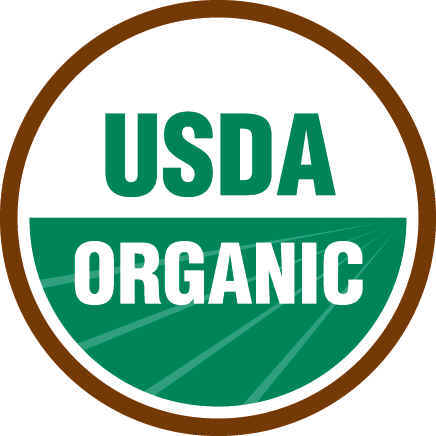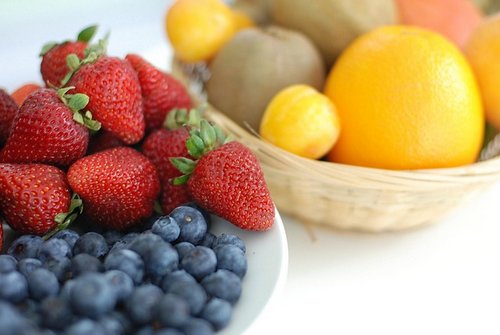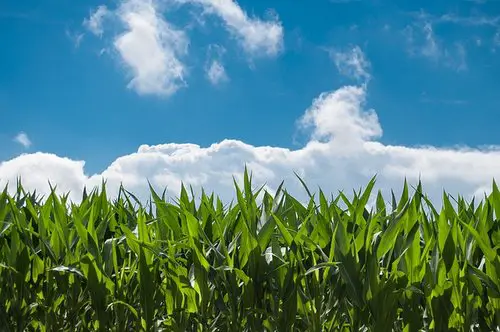Eating Organic: Healthier Way to Live or Clever Marketing Gimmick
By : Mike Jerrard
It is impossible these days to go anywhere without seeing signs or stickers plastered on products announcing they are “organic.” It seems like almost every product has a golden child counterpart which demonizes its inferior neighbor who lacks the organic label. So what is organic and can eating organically turn us all into superheros? Or could it be that we have been duped by a very clever marketing strategy which sees us paying two or three times the cost for products we have been buying for years?

So Just What is Organic Food?
This is surprisingly not that easy to answer because the definitions can vary a bit. According to the USDA at least 95% of a product must be organic in order to carry the label of “organic.” Technically speaking then, there might not be any products that we are purchasing which are truly 100% organic. A product which is at least 70% organic can use the term organic in their labeling such as “made with organic.” Even products that are less than 70% organic can use organic in their ingredients list if that ingredient is deemed organic. Confused yet? With so many rules it can be difficult to know if you are truly eating organic. Throw in products labeled with the words natural, free-range, or pure which are not regulated by the USDA labeling guidelines and things can get even blurrier.

Is Organic Food Healthier?
With all the hype around organic food there still is no conclusive evidence to state that it is superior to the original food we have been eating for generations. Many studies which over state the benefits of eating organic are deceivingly skewed. We may discover in the future that organic food does in fact have more nutrients but for the cost difference we could simply eat two traditional apples for less cost and make up for the “inferiority.”
When it comes to the harsh pesticides and chemicals that are used in non organic farming, there is no doubting the fact that traces end up in our bodies. The concentration levels have been shown to be so low however that it has been deemed safe and poses no threat. In today’s age of social media we can be assured that if any food were indeed unsafe for consumption, that fact would not remain hidden very long. We have given the word “chemical” such a bad connotation when we forget that or tap water is treated with chemical in order that we don’t become sick from contaminant. Chemicals have in many cases improved our lives and made us healthier. Even oxygen and pure water, the necessities of life, are made up of chemicals.
As a side note, organic food is not grown under natural conditions. It is grown in an artificial perfect environment with modified conditions to produce highest yields and profits possible. This in itself may change the makeup of the food that is produced which may prove to be just as harmful. it may be a case of over compensating for harsher traditional methods.

Is Organic Food Better for the Environment?
may seem like a no-brainer to answer, but is it? One would argue that of course growing foods organically which refrains from using unnatural harsh chemicals and pesticides would be better for the planet. The problem is now with the whole organic craze in full swing, you are seeing more organic farms popping up to get in on the action. You are seeing truly natural land turned into farms and now you have more fuel and energy consumption in the cultivation and transportation of these new organic goods. If all the current farms decided to or were forced to switch to using organic processes and no new farms popped up then yes the environment would most likely benefit but that is not happening.
The other very serious problem that would arise from using organic processes for growing food would be the very strong likelihood of an increase in world hunger. Genetically modifying food is essential in order to feed the enormous populations of the world. Without it we would not be able to produce the levels of food that are required nor could we preserve that food long enough for it to arrive where it is needed. Organic farming is a lot more expensive and takes much longer to produce therefore severely decreasing the output. One might say why don’t we just use genetically modified food to ship to impoverished nations but are we then saying we should send these nations are inferior food and keep the supposed superior healthy food for the “more important” first world nations?
Conclusion:
After reading this you may feel as though you have become a victim to the hype but even though you may have shelled out unnecessary cash on those magical beans it isn’t necessarily all bad. The organic movement has brought much needed attention to the environment. There is no arguing the fact we have and continue to destroy the world we were given. Many of those who choose to eat organic do so because they want to try to save what we have left as futile as that may seem and for that they should be respected. The wasted money that we are pumping into organic products however would be much better used towards real and trusted conservation methods with no ulterior selfish motives of what we as individuals will get in return such as more nutritious and tasty food.




















